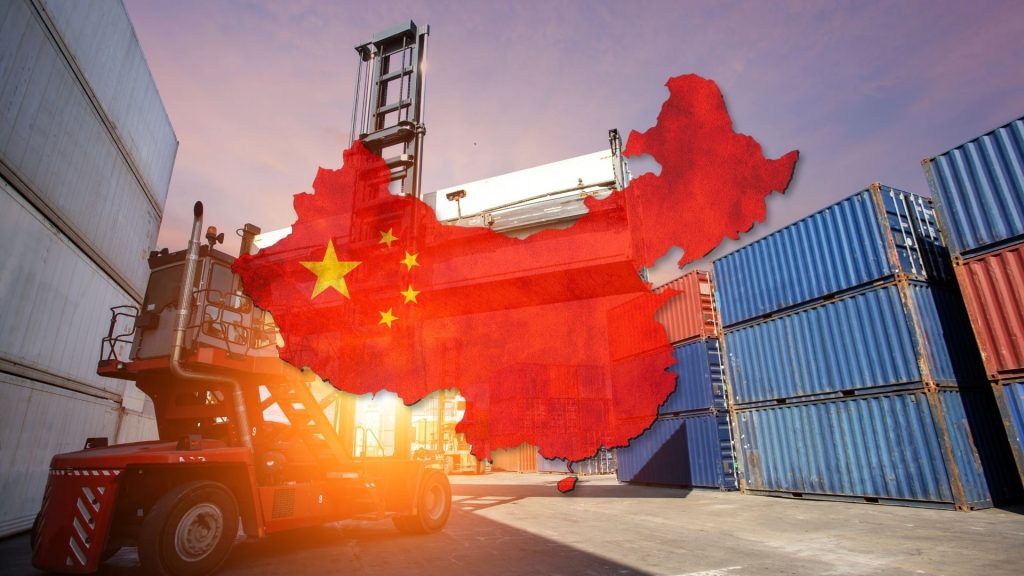Table of Contents
Chinese trading companies have evolved into major players in the global trade landscape, playing a crucial role in facilitating international commerce.
This article provides a comprehensive exploration of the functions, significance, and impact of Chinese trading companies.
From their historical development to contemporary profiles and case studies, we will delve into the world of these influential entities and their contributions to China’s international trade.
Historical Evolution of Chinese Trading Companies
Source: Pexels
- The Ancient Roots
Trading has been an integral part of Chinese history for centuries. The Silk Road, an ancient network of trade routes, connected China to the Mediterranean, allowing the exchange of goods, culture, and ideas.
Chinese merchants, known as “huo shang” in Mandarin, played a pivotal role in this trade, exporting silk, porcelain, tea, and other valuable commodities.
- Modern Resurgence
In the late 20th century, China’s economic reforms and open-door policies catalyzed the resurgence of trading companies.
The government’s initiatives to encourage foreign trade and investment created a fertile ground for private enterprises to flourish. These trading companies expanded their reach globally, becoming key intermediaries in China’s international trade.
Profiles of Prominent Chinese Trading Companies
- Alibaba Group
Source: CNBC
Alibaba Group, founded by Jack Ma in 1999, is a global giant in e-commerce and technology. The company operates platforms such as Alibaba.com and Taobao, connecting Chinese manufacturers and sellers with buyers worldwide.
With a strong focus on digital trade, Alibaba has transformed how businesses source and sell products globally.
- Huawei
Source: Marketing.co.id
Huawei, a technology and telecommunications company, has rapidly expanded its international presence.
It provides a wide range of products and services, including smartphones, networking equipment, and cloud solutions. Huawei’s global reach and innovation have made it a prominent player in the tech industry.
- PetroChina
Source: Kontan.co.id
PetroChina, a subsidiary of China National Petroleum Corporation (CNPC), is one of the largest oil and gas companies in the world.
With operations spanning exploration, production, refining, and marketing, PetroChina plays a critical role in securing energy resources and fostering international partnerships.
The Scale of Imports and Exports
Source: Pexels
Chinese trading companies are instrumental in China’s international trade activities. They facilitate the movement of a vast array of products, contributing to China’s position as the world’s largest trading nation.
- Exports
Source: CGTN
In terms of U.S. dollars, China’s exports and imports saw a significant increase of 29.9 percent and 30.1 percent, respectively, over the entire year of 2021.
Chinese trading companies are responsible for exporting a broad spectrum of goods, from electronics and consumer products to machinery and textiles.
These exports not only drive China’s economic growth but also supply the global market with affordable and high-quality products.
- Imports
Source: CGTN
In December, imports saw year-on-year growth of 19.5 percent, lower than Reuters’ projection of 26.3 percent and down from the 31.7 percent increase observed in November.
Even though it has decreased, apart from exports, Chinese trading companies are the main importers. They source raw materials, energy resources, and semi-finished goods to support China’s manufacturing sector. This import activity drives industrial expansion in the country and secures the supply chain.
- International Influence
Chinese trading companies have fostered international collaborations and investments. They have acquired stakes in foreign companies, established joint ventures, and built a global network of trade relationships. This international influence amplifies China’s role in the global economy.
The Significance of Chinese Trading Companies
Source: Pexels
- Economic Catalyst
Chinese trading companies stimulate economic growth by driving exports and imports. Their operations create jobs, generate revenue, and contribute to China’s GDP. Furthermore, they play a pivotal role in China’s transition from a manufacturing hub to an innovation-driven economy.
- Global Trade Integration
China’s trading companies are a driving force behind the country’s integration into the global trade network. Their involvement in international trade ensures that Chinese products are accessible worldwide, promoting cultural exchange and economic interdependence.
- Diversified Sectoral Impact
These companies operate in various sectors, spanning electronics, textiles, machinery, and more. Their diverse activities promote balanced growth in different industries and enhance China’s competitiveness on the global stage.
The Future of Chinese Trading Companies
As China continues to embrace economic reforms and globalization, the future of Chinese trading companies looks promising. Their adaptability, innovation, and global outlook are expected to drive their continued growth and influence on international trade.
These companies are likely to play a pivotal role in shaping the future of China’s economy and global trade landscape.
In conclusion, Chinese trading companies have come a long way from their historical roots as Silk Road merchants. Today, they are pivotal players in global trade, exporting and importing a vast array of products, fostering economic growth, and shaping China’s international trade landscape.
Their significance is poised to grow as they continue to adapt to the ever-evolving world of international commerce. For international businesses, importers, exporters, entrepreneurs, and traders, understanding the roles and functions of Chinese trading companies is key to unlocking opportunities and navigating the complex world of global trade.
Unlocking the Chinese Market with Hi-Fella
Are you a business looking to connect with the dynamic world of global trade? Hi-Fella, a leading B2B marketplace, can be your gateway to a world of opportunities.
With thousands of manufacturers, suppliers, and potential buyers in one convenient platform, Hi-Fella simplifies the process of connecting and collaborating on an international scale.
Whether you are seeking to expand your product sourcing, establish new business partnerships, or explore global market trends, Hi-Fella provides a platform for you to thrive in the international business landscape, including the Chinese market. Explore the Chinese market with Hi-Fella now!








